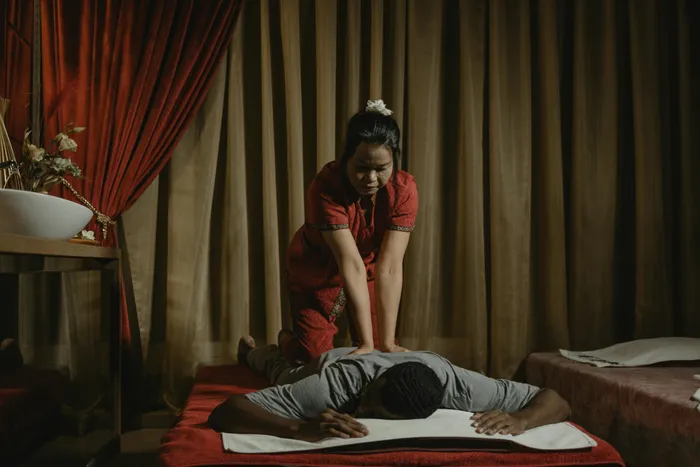WATCH: How massage and holistic therapy helps reduce pain for cancer patients

Studies have found that holistic therapies can reduce post-operative pain for cancer for cancer patients. Picture: Pexels
Massage and spa therapies are often dismissed as mere pampering treatments for those wanting to take a bit of time out of their daily routines when life becomes stressful.
However, there is scientific evidence that proves they are more than just that.
Evidence-based research from the International Journal of Clinical Medicine is now confirming what many of the ancient cultures knew - that massage and touch therapy treatments can play an important role in the holistic treatment of the human body.
Studies have found that holistic therapies can reduce cancer pain, and can be particularly effective in relieving post-operative pain that many patients experience.
Non-pharmacological approaches to managing cancer pain, like massage therapy, are being increasingly recommended by physicians and embraced by patients.
Holistic care involves a combination of conventional and complementary medicine, such as chemotherapy and acupuncture, to help treat patients.
In the US, the University of Texas MD Anderson Cancer Centre’s Integrative Medicine Program was established in 1998 and is one of the largest programs that advocates this holistic approach.
Medical treatments such as chemotherapy and radiation therapy are used to help fight cancer, but some of their side effects may be difficult to live with.
Cancer-related fatigue can have a significant negative impact on quality of life, including impacting mood and reducing the ability to cope with recovery. Holistic therapies have been shown to decrease fatigue among cancer patients, as well as improve their quality of life.
Acupuncture helps relieve pain, fatigue, nausea, depression, anxiety and sleeping problems, while the use of essential oils from flowers and herbs help improve emotional and spiritual wellbeing.
Some essential oils help reduce the nausea, anxiety and stress associated with radiation and chemotherapy treatments.
Essential oils can be applied to the body during a light massage or a diffuser can be placed in the patient's room for the fragrance to be inhaled. Both options help to reduce stress and have a calming effect, which can reduce pain.
Neuro-psychiatrist Dr Frans Hugo explains that nerve endings on the skin relay touch sensations on the skin to electrical impulses that are conveyed to the brain.
“The impulse arrives in the sensory cortex and is further processed here. The atmosphere of the room, pleasant smells and perhaps a special person activates the limbic system, which is the emotional part of the brain.
“Here the chemical substance called dopamine is involved. Release of dopamine is associated with mild euphoria, so the touch sensation in the sensory cortex is associated with this euphoria in the limbic system,”
At Groote Schuur hospital in Cape Town, the kangaroo care programme, in which premature babies are held skin-to-skin for part of the day instead of being confined to incubators, had similar results.
Babies and pre-school children who are given massage have also been shown to learn more effectively than those not given the touch treatment.
Massage can be a very helpful adjunct to therapy or to other medical treatments, explains Dr Gordon Isaacs of the Cape Town Trauma Centre.
“When people are traumatised they experience tremendous stress in their bodies. A massage is a process that allows the client to concentrate on being relaxed, providing a moment when they can transcend their psychological trauma”.
IOL Lifestyle